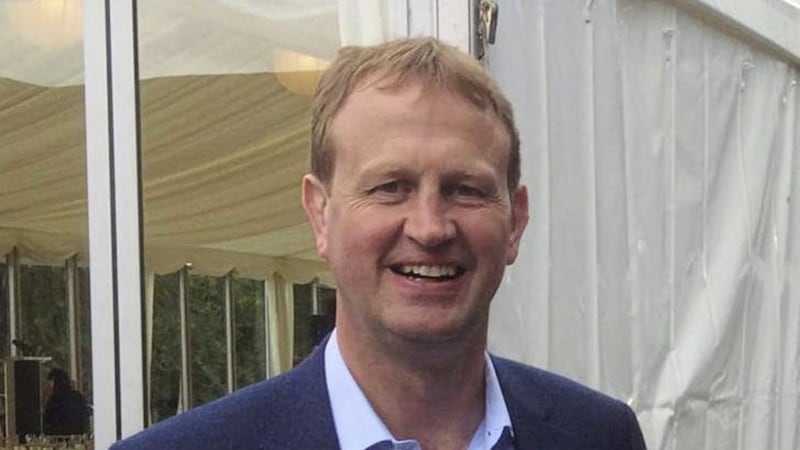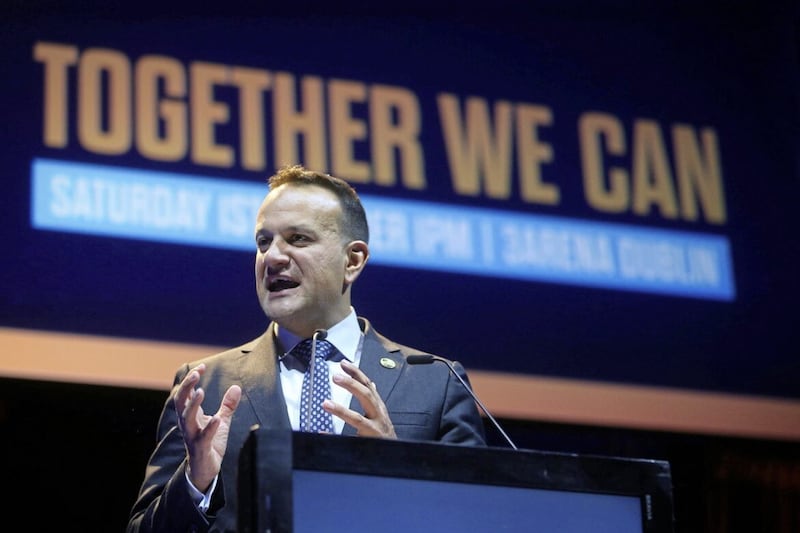JIM O'Callaghan has arguably done more in the past decade to talk up the potential for Irish unification than any other Fianna Fáil politician. While his party leader and Taoiseach Micháel Martin is seemingly reluctant to push the unity agenda, instead focussing on what he regards as his Shared Island Unit's more tangible outcomes, the Dublin Bay South TD has sought to put flesh on the bones of his republican aspirations.
In March this year, the man widely tipped as a future Fianna Fáil leader presented a comprehensive paper outlining a series of proposals for what a new 32-county state might look like. It included the retention of the PSNI and an all-island parliament sitting in Belfast. He argues that the religious and economic assurances which led unionists to a separate state a century ago are no longer relevant though concedes "that in itself is not a reason to end partition".
Mr O'Callaghan says he has received positive feedback from his plan from nationalists, republicans and even some unionists. He characterises his vision as a "merger rather than a takeover of the north by the south".
In common with most of his party colleagues and the SDLP, he argues that it is necessary to do the groundwork ahead of a border poll. Nevertheless, he believes that "demographic changes and the uncertain consequences of Brexit" have significantly increased the likelihood of a referendum. Mr O'Callaghan believes there's likely to be a vote before the end of the decade, adding "and I'd like to see one".
"We can keep talking but we really need to do the preparatory work and let people see what a new country would look like – what the constitution, legal system and political structures would look like," he told The Irish News.
"Otherwise it’s just an emotive and ill-informed discussion."
The former Fianna Fáil justice and equality spokesperson believes an all-Ireland national health service free at the point of use is a “realistic goal” and points to the the Dublin government's Sláintecare as a indication of the direction of travel. He also suggests that the north would benefit from an education system closer to the southern model.
He's reluctant, for obvious reasons, to criticise the current Dublin administration but recognises that the government in the Republic must play a central role in preparing for constitutional change. However, he is wary of the “Irish government dictating what a new country should look like”.
In the first instance, the Fianna Fáil backbencher would like to see a group of academics draft a new constitution, while he also advocates enlisting outside help from people "who don’t have as huge emotional attachment to this place". Symbolic matters like a flag and anthem are almost secondary, he argues, and can be discussed by a citizens assembly.
"Let’s not get bogged down in the most difficult issues first," he says.
He also believes civic society has a role to play and welcomes the "excellent work" undertaken by Ireland's Future. Notably, he does not share the view of some party colleagues, who in the past have disparaged the group, suggesting it is closely aligned to Sinn Féin.
"I’ve engaged with them I’m happy to engage with them," he says of Ireland's Future.
"It’s important in this discussion that we try as much as possible not to shroud it in party politics, because if we do we’re never going to get off the first starting point."
He acknowledges that ideally unionism should engage on the potential for constitutional change, however, to date the response from political unionism's leaders has been been to effectively ignore the issue.
"It's not for me to lecture other political parties or unionist politicians, and I can understand their hesitancy in getting involved in the debate, but they shouldn’t be fearful." Mr O'Callaghan says.
He defends the right of unionists to argue the merits of remaining in the UK though suggests they need to be "more adventurous about talking about what changes could be introduced" under the status quo.
"The only advice I’ll give them is if they stick their heads in the sand and ignore it, it could just happen without their involvement and they could get left behind," he says.
He also agrees that southern politicians are similarly hesitant.
"But under the Good Friday Agreement, we reached an arrangement where it’s really a matter for the people of Northern Ireland to decide whether or not to kick-start this event and if they do, we can’t very well say we don’t like it – we’ve agreed to it," he says.
"Irrespective of whether you’re a strong advocate for unification, as I am, if you’re politician in the south you have to be very conscious of the fact that this is something that’s coming along and we need to prepare for it."
In the shorter term, one area he believes his party should be more active is in augmenting its so-called policy partnership with the SDLP, an initiative that has been distinctly low key since it was announced in early 2019.
Mr O'Callaghan says it's "unfair to say it’s come to nothing" before suggesting the tie-up "got crowded out by other political developments", such as general elections on both sides of the Irish Sea and latterly the pandemic.
"If we want to expand ourselves as a party and look to new horizons, this is what we should be doing and it’s completely consistent with our republican outlook and the fact that we are committed to peaceful unification," he says of forging stronger relations with Colum Eastwood's party.
On the Northern Ireland Protocol, he argues that there has been a degree of revisionism from unionists and the British government about how the post-Brexit trade arrangements came about. While he doesn't believe unionists are exaggerating the impact of the Irish Sea trade border on the relationship between Britain and the north, he notes that the "same difficulties with trade between Great Britain and Northern Ireland are happening between Great Britain and the Republic".
Ultimately, however, he regards the protocol as an opportunity which needs to be recognised by unionists.
"If you were looking at this objectively and you were trying to defend unionism, you could say look we have a wonderful opportunity to open business wit the EU and we have still have the relationship with the UK," he says.
"The problem with Northern Ireland is people are forced to adopt political positions without having to think them through and whether or not the interests of your electorate would be better served by supporting that decision."







